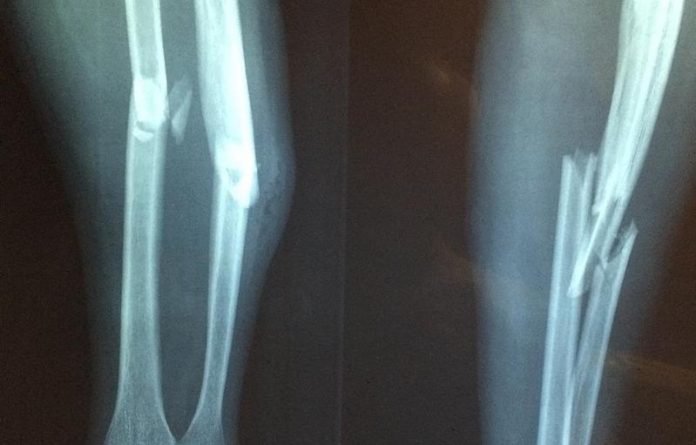
In a study from C San Francisco, UC Davis, and UC Berkeley, scientists confirmed that besides impairing cardiovascular and kidney function, Type 2 diabetes is known to be a risk factor for bone fractures.
They found that the disease compromises the collagen within bones, making the bones less flexible and more likely to break.
In the study, the team looked at factors outside of bone density that could explain bone fragility in diabetes.
They found in healthy bones, networks of collagen fibers stretch and slide in response to strain, which helps the bones resist cracking.
But high blood sugar in diabetes leads to the accumulation of so-called advanced glycation end products, which bind collagen fibers to each other and impair their stretching and sliding.
The researchers examined bones from the lower back and forearm of lean, obese, and diabetic obese rat models.
Both the obese rats and the diabetic obese rats had overall weaker bones for a given bone mineral content.
In obese rats, the reduced strength was attributable to structural deficits, such as changes to the microarchitecture of the bones and inefficient distribution of bone mass.
In the diabetic obese rats, however, these structural deficits were compounded by material deficits – changes to the collagen networks – that were previously not well documented.
By comparing the obese rats with the diabetic obese rats, the researchers could isolate the effect of hyperglycemia on bone fragility.
In the forearm bones, for example, the collagen changes were responsible for significant reductions in the elastic, yield, and ultimate tensile properties of the bone tissue.
The researchers note that they did not study animals with an advanced duration and severity of diabetes. But they expect that long-term diabetes would only further impair bone strength.
These findings shed light on why bones in a diabetic milieu are so fragile. They may lead to better diagnostic tools and therapies for managing fracture risk in adults with diabetes.
If you care about bone health, please read studies that plant-based diets can harm your bone health without these two nutrients, and this bone problem may strongly increase the COVID-19 death risk.
For more information about health, please see recent studies that too much vitamin may increase your risk of bone fractures, and results showing this type of exercise could slow down bone aging.
The study was conducted by Aaron Fields et al and published in the Journal of Bone and Mineral Research.
Copyright © 2022 Knowridge Science Report. All rights reserved.



